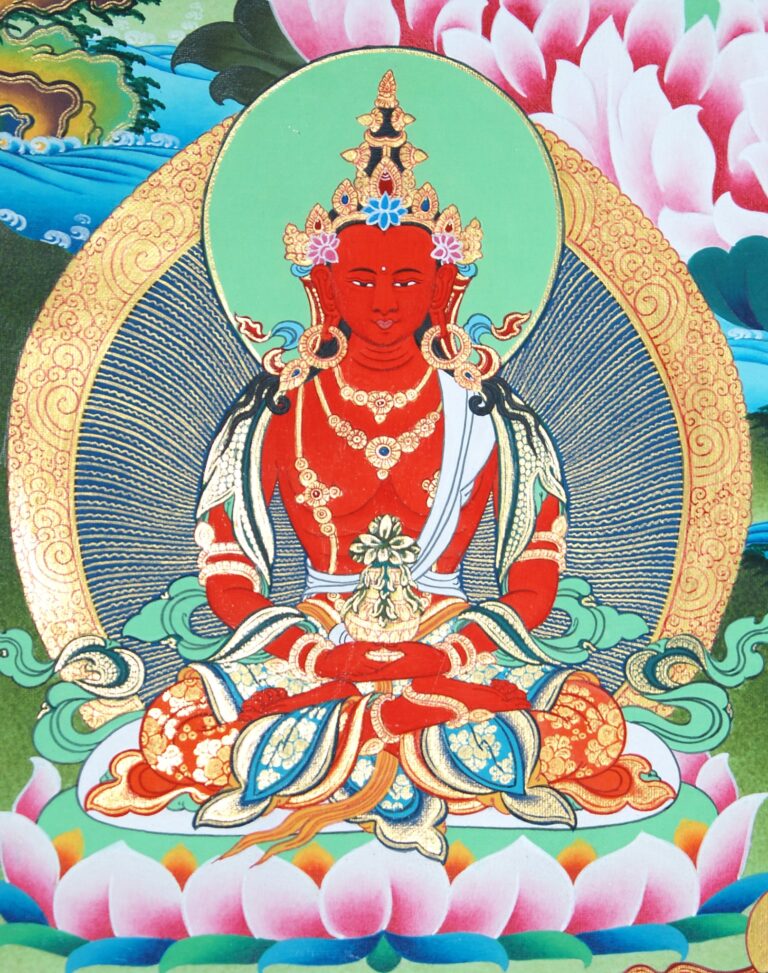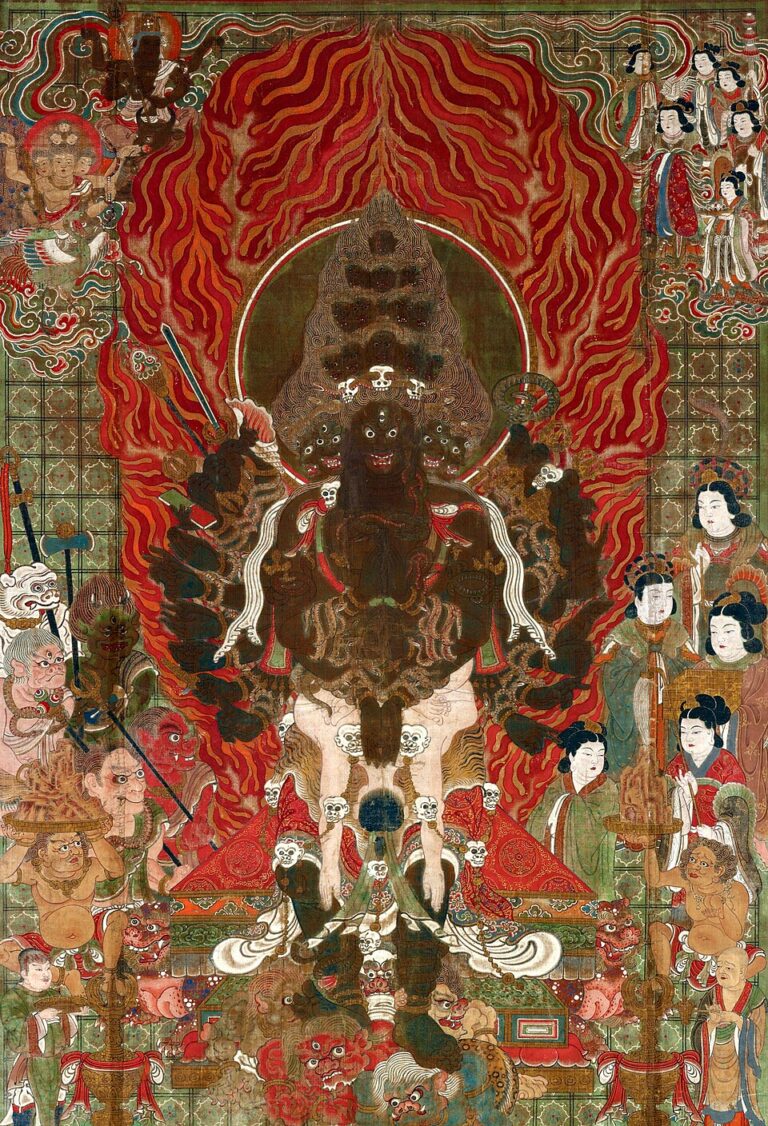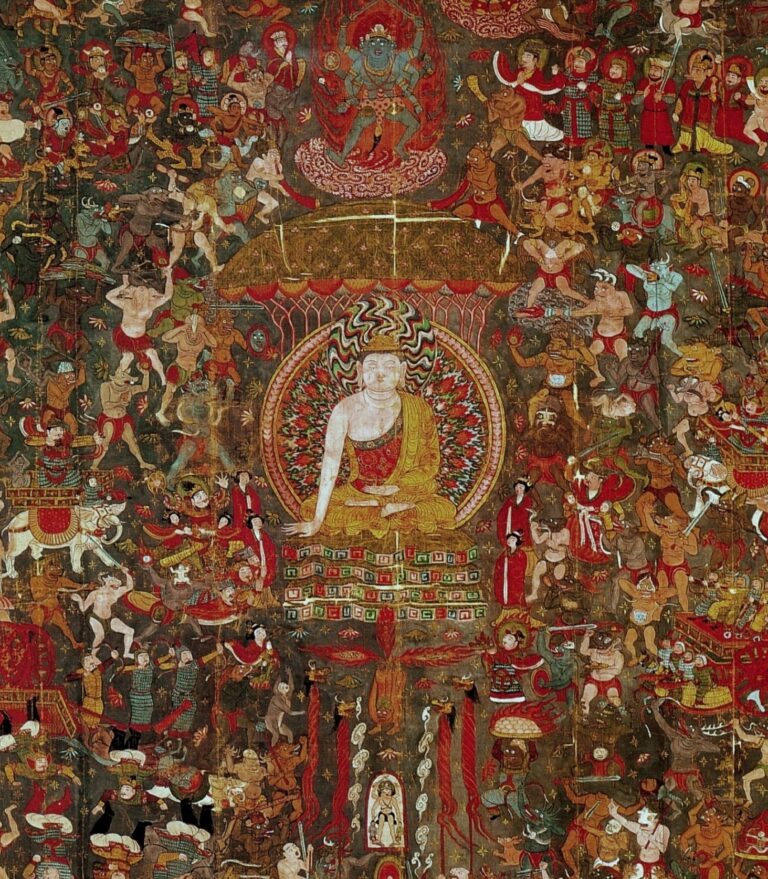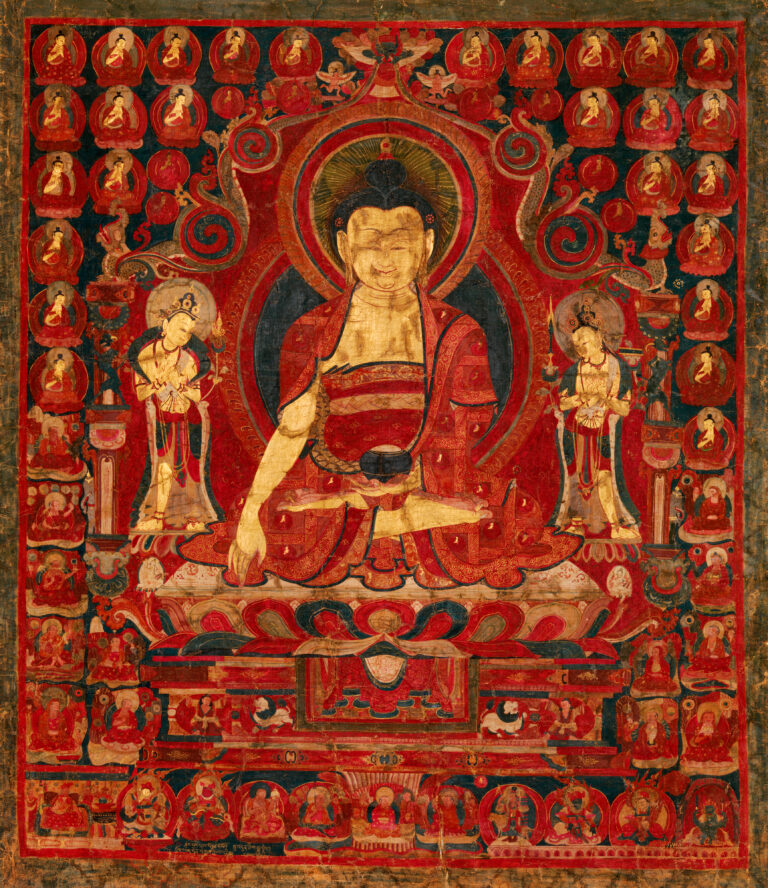Love and compassion are not elements of spiritual practice: they are its core. Love is the shakti of wisdom, the natural outpouring of the liberated mind. Love and liberation relate to each other as the sun and its rays, which through warming our bodies and illuminating the world bears witness to the light of our central star. Just so, the radiance of love testifies to wisdom.
The yogasutras clearly state that love as a spiritual practice, in and of itself, is sufficient. The Buddha said that the meditation of metta-bhavana, or kindness, is a complete path to enlightenment. This means that we require no asana, pranayama, mantras or meditation if we learn how to really love, and live in naked and fearless compassion. We are guaranteed safe passage to the other shore – by Patanjali and Buddha alike – simply by practicing love.
Yoga is the act of dissolving the barrier between the presumed “I” and the rest of the universe. This is what love and compassion do. When we love, we’re wide open. When the body-mind rests in compassion, the walls of “mine” and “yours” gets beautifully blurry. Love is an opening, an outpouring of self, a widening of our reality, a relaxation of the constant labelling performed by the mind. Love is as such the direct opposition to a trauma response, which is hyper-focused, labelling and closed.
In yogic thought, love and compassion are not something we learn from society, they are the natural state of our souls. We are born loving. Our true nature – whatever term we refer to it by – is always in a state of oneness with the universe, even though we fail to perceive it. This oneness expresses itself as love. The liberated mind has no choice but to love, just as a stick of incense naturally perfumes the entire room, with neither intention or preference for any specific direction. When we practice love and compassion, we are not accumulating new qualities, or learning something. It’s not learning at all. We are relaxing into our natural state. Love and compassion are neither a thought, an idea nor a behavior. They are the radiance of our souls, unobstructed by conditioning, or samskaras. Where love resides, hatred, fear and desire do not. In Buddhism, it is said that we can chant protective mantras, or perform great rituals of purification in order to make sure there are no negative spirits in a place – or, we can simply be in a state of love.
The reason it feels so good to be in love is because in those moments, we are completely natural. We again experience the open, beaming presence of the child before it’s taught to conceal its radiance. In love, we are Ourselves. Brahman pierces through the layers of samskaras, and we’re in a state of union with the world. Deep meditation and being in love are very similar states: the body relaxes, the mind becomes radiantly present, pleasure enters all our senses, and our hearts open. One strikingly efficient way to purify the samskaras of anger, desire and fear is to simply love. Love and the mental poisons cannot occupy the same heart, in the same way that light and shadow cannot coexist. Love does not only purify the mind, it is also deeply healing for the body. Like an acid, it permeates our nervous system, bones and muscles, and establishes a state of deep rejuvenation. Love is infectious. It radiates out from the body, and influences everything around it. Being around a truly compassionate person, a great lama or a realized yogi, is healing in and of itself.
Love is a choice. The difference between people who are hateful and arrogant, and those who radiate kindness, is the choices they’ve made. Choosing to open one’s heart, and live in empathy, rather than suspicion is not an easy choice. It requires far, far more courage than to be angry, bitter and arrogant. Following one’s patterns of behavior is easy. It’s what we know, and as such highly predictable. Choosing empathy and kindness is the exact opposite. We open ourselves up to being betrayed, used, excluded and hurt. Love is not for cowards. The practice of compassion is only for those who are truly adventurous, who really want to see what life has to offer. It is much more risky than isolating oneself. Yet, it has the power to transform the entire world. The radiance of the hearts of great masters literally transforms the fabric of the universe. The Dalai Lama, a gentle, old man, has touched the hearts of billions of people worldwide. 3000 years after the Buddha’s awakening, there are still millions of people, today, touched by the radiance of his heart, by the outpouring of one man’s compassion.
Compassion does not mean pity. Pity is by nature based on an inequality between its sender and its recipient. “Poor you” is pity, not compassion. When we set forth cultivating love and compassion, we do not do so by counting the number of people we feel sorry for. This is not a mental exercise wherein we count the misfortunes befallen to others. True compassion is based on seeing beyond the personality. It is an equal exchange – and thus neither looking up to, nor down on, others. This love rests on the yogic notion that all forms of life are embodiments of the one, universal mind, just as we are. It is not compassion towards someone’s traumatic past, which manifests as their current misfortune, but rather a penetrating insight into their core being.






